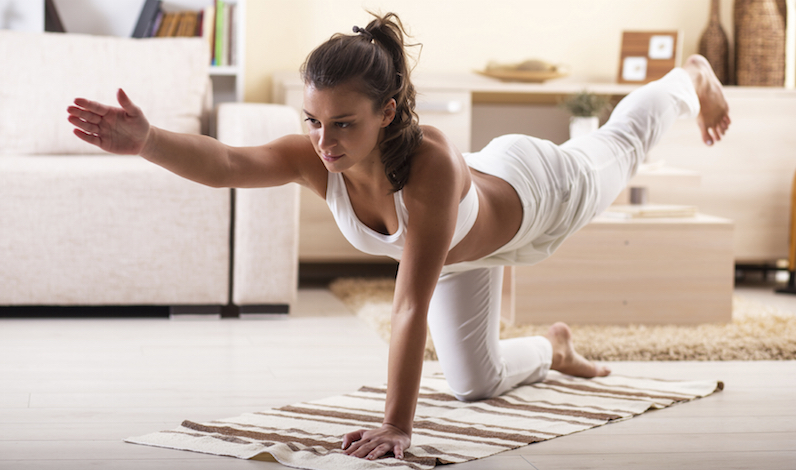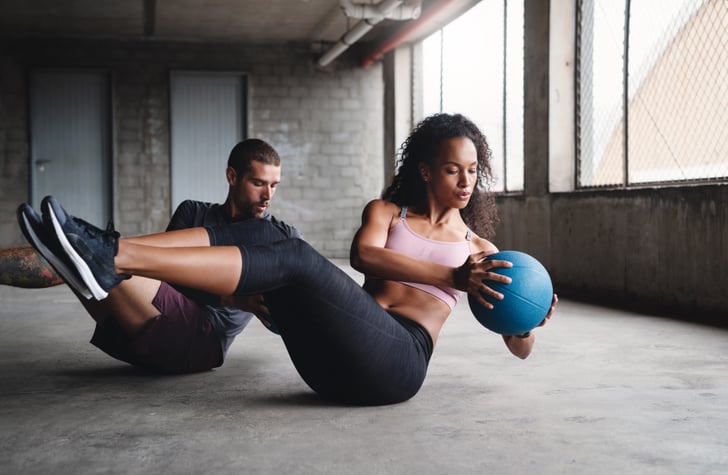With the increasing awareness in the world today of how our lifestyles affect our health and wellness, the practice of physical exercising is increasing. Workouts (exercises) hold an important and irreplaceable role in the overall state of wellbeing of every human.

Courtesy: Baboo Fitness
Working out has many benefits for you as an individual. Thinking about it, you would realize that the community, in turn, is affected by this giant stride. Talk about cardio, resistance exercises, and so many other examples. I don’t want to dwell too much on the impact exercising has on individuals and the society because we are here to talk about something else. But for further reading there’s another article on the benefits of exercise.
So Frequently Asked WORKOUT Questions!
Everybody wants to take a step in the right direction. The issue however, is that very often we get confused by the cloud of choices before us. Based on our discussion today, the right direction is one that leads to body fitness. Yes, body fitness because that is the main goal of working out. To help clear your confusion and enhance your knowledge, I have created a list of questions with appropriate answers. All of which are from research, experience, and one on one interactions.
Before we go on, I must mention that there are different categories of exercises. They are generally grouped as:
- Aerobic Exercises: They make heart pump blood faster and so the heart rate is higher.
- Strength [Resistance] Exercises: They build muscle mass.
- Flexibility [Stretch] Exercises: They improve your range of motion which in turn, reduces joint and muscle pain and injuries.
- Balance Exercises.
How is this relevant to the FAQs?
The FAQs are going to answers questions that apply to all exercise categories while also containing principles that apply to each type.
What are warm-ups; why are they necessary?
This first question is fundamental. Warm-ups are the physical activities that stimulate your cardiovascular system gradually hence increasing blood flow. The intensity of warm-up exercises usually increases from start to finish. They precede the main exercise program.

Skolai Images
Warming up stretches the body’s muscles, ligaments and joints, this increases flexibility resulting in better performances during exercise. It also reduces the possibility of injuries from exercising.
How can I know the workout routine that works for me best?
Before we start blowing grammar, workout routine means the series of exercises (sets, reps) you do for a period. Before you jump at exercising, you have to take out time to think “what do I want to achieve?” It could be that you want to tone up your muscles, lose bodyweight, develop endurance, etc. Your workout goal is what would determine what your routine is going to look like.
Consult your doctor, fitness coach, guides available online, etc. for guidance. Most importantly, make sure you are taking advice from an expert.
What should I do when I don’t have the necessary equipment at home and can’t go to the gym?
That’s not a big deal. First of all, not every exercise requires equipment. For the ones that do, there are usually similar exercises you can substitute it with. Just make sure you have the perfect replacement.
Furthermore, for your workouts at home, make sure you use somewhere spacious enough. We don’t want you breaking things or worse, getting injured.

Exercising in a Spacious Room, no equipments. Photo Credit: Sydney Corporate Yoga
When carrying out my routines, how long is too long for breaks between exercise sets?
This depends solely on your target e.g. weight loss, muscle building, etc. For example, the National Strength and Conditioning Association recommend 30-90 seconds for muscle building and 30 seconds or less for endurance.
Normally, you would take longer breaks when you are just starting. However, try to get used to the recommended rest time for the routine you are following.
How long should my work out last for it to be effective?
There is no ideal period your workout should span out for. With variations here and there it’s difficult to put a time on it. Keeping the recommended duration for your routine in mind, know that once you are exercising intelligently and feeling the burns and sores, you are doing great.
The general suggested time is around 30-90 minutes. It is to put people in check, avoiding fatigue that would result in an unnecessary breakdown. Consistency is the key!
Can I break my routine to two or more sessions each?
Exercise routines yield maximal output when they are done at a stretch so, make it a stretch. The good news however is, from recent studies aerobics can give you almost the same result when done continuously and when split into two sessions.
How frequently should I work out per week?
Muscle recovery is vital in exercise programs. Don’t push yourself too hard working out every day. Depending on the difficulty of your routine, your skill level, and other things you might want to consider a day off every 3-5 days is cool.
Can I do my exercises at any time of the day?
Yes, you can. The most important thing with working out is CONSISTENCY. Exercising in the morning or evening has been proven to have their separate advantages. Choose a time that fits your daily activities and run with it. Also, you could decide to compare the advantages of different times and see which fits you best.

:max_bytes(150000):strip_icc()/GettyImages-986958620-c7c71a79d4204b2ba08b68136575e1b0.jpg)
If I exercise, will my body fat turn to muscles?
No, you burn the fat. Concurrently, you can build muscles by strength (resistance) exercises.
How long is it going to take for me to notice changes in my body?
Frankly speaking, this varies with the exercise routine and from person to person. In some people, notable differences occur in 2 or 3 weeks. For others, it could be a month or 2. I think, in the worst-case scenario, there should be a transformation in at most 3 months.
Does eating before my workout session make any difference?
Yes, it does. You’d have the energy to go on for a longer period and it also helps your intensity. On the other hand, you won’t burn as much fat as you would on an empty stomach. The reason is the calories you burn on an empty stomach are from the stored up body fat.
Is it ok to feel pain while exercising?
No, it isn’t! Muscle soreness is different from a localized, stabbing, or whatever type of pain you are experiencing. When you experience pain, stop exercising. If it doesn’t go away, contact your doctor to avoid complications
I hope you have learnt a thing or two about exercising? Remember, you can always do your research for specific areas of interests. Go on and be the fit person you see yourself becoming
Photo Credit
Time of the Day to work out: Getty Images, Very Well Fit
popsugar

A phenomenal lady whose skills and style do the talking. Her unending desire for better healthcare from persons, through to the public has always been her drive. Over the years, she has volunteered with different NGOs that try to promote a healthy lifestyle.
She hopes to one day create an avenue for people to get the guidance needed for nutrition essential for life, amongst other things. She believes knowledge paves ways. And so, makes it a responsibility to keep learning and impacting others.
Deborah Solomon is a believer and currently a medical student at the Obafemi Awolowo University, Nigeria. She enjoys writing, traveling, music, and cooking.

